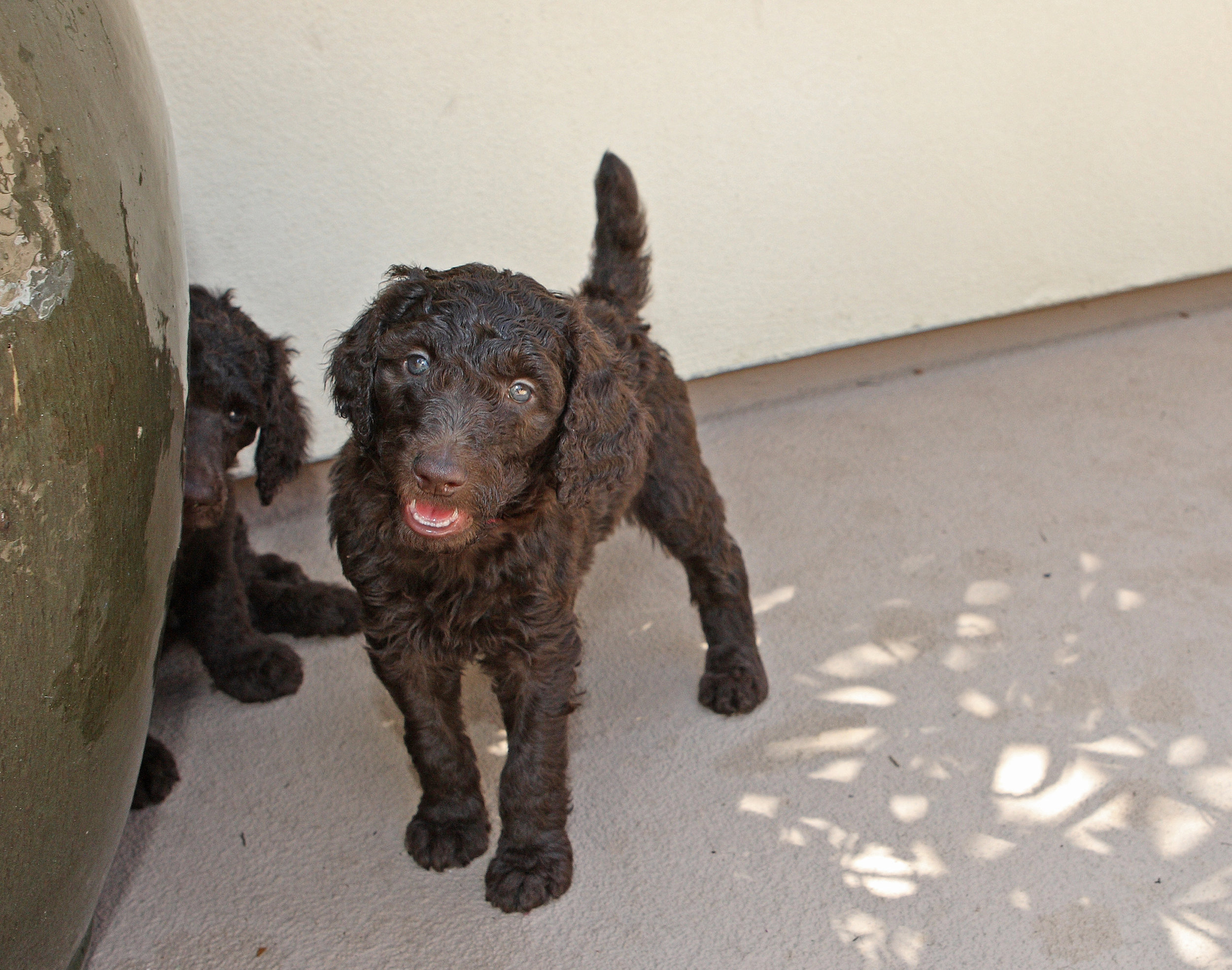Looks inside, that’s where the important stuff is.
Dog - a domesticated canid, Canis familiaris, bred in many varieties.
Okay, so a dog is a dog is a dog, right? Wrong; each dog is very individual. This fact is very obvious, no more so than when I perform a temperament test. As most of you know, temperament testing is a service that I offer. This is when I get to see who is who in a litter; and it has nothing to do with the way they look. Not surprisingly though, is that most people choose their dog by the color or exterior image; caring little to what’s inside that little bundle of joy.
I am a huge believer of matching dog to their most appropriate family. That does not just mean color, breed or mix of breeds. I believe that when looking for a puppy you should ask yourself a lot of questions before bringing one home.
What is your life like?
What does your day to day look like?
Do you want to have a huge horse like dog in your house or would you prefer a tiny little guy running around?
Do you want a high energy dog who wants to run marathons?
Or would you prefer that they simply lay on the couch all day?
Are you interested in training a lot or would you rather not?
Are there small children in your life?
This is a very small list, I could go on and on with more questions. And these are all before even considering an individual puppy. First you need to figure out what you want to live with and the only thing with regards to living and canine exterior is fur.
Do you care if there are tumble weeds rolling around your house?
What about little needle hairs that weave their way into everything?
Or would you prefer no hair around?
These three questions are the only things that matter as far as exterior. Of course if you live in frigid or very hot temperatures; that should factor in somewhat, although it doesn’t seem to for most folks.
It is a very human trait that we want what we find beautiful. But choosing a dog for it’s exterior can go very wrong and sadly it often does. “I want the one with the patch over his left eye, he’s so cute.” What if that puppy is a fearful, lazy little guy and you plan on a very social and active lifestyle with him? Life may end up a struggle for the both of you.
“I have to have the little white one, she’s adorable.” That white demur looking little girl could be a nightmare on four paws. She may have more energy than you know what to do with. She may be a one person dog and you have a family of seven who all want her to be their new best friend.
I have chosen to live with Standard Poodles. I love their intelligence level, the fact that they do not shed, their athletic ability and their ability to do just about anything. That said “do anything” is a blanket statement; not all are going to do the things that I want to do. My one and only stipulation as far as exterior color is no black; and that is simply because we live in Southern California and are so active outdoors, they get too hot. What I look for in a dog is all on the inside, the heart and soul of a dog.
Wouldn’t it be nice if humans could look inside of other humans and see who they were instead of focusing on the exterior? Same goes for dogs, it is what’s inside that is important. So often a dog goes unmatched with a perfect guardian because of exterior. “I want pure black, not the one with a white paw” I’ve heard; even after knowing that the white paw dog is what these folks are looking for.
Everyone has choices in life and that goes with choosing dogs as well. I ADORE DOGS!!!!! I think you all know that. But what I love is what’s inside. Of course I can and do appreciate beauty; but more than exterior beauty, I love a beautiful heart and soul. And that my friends is what is so great about dogs. No matter what a canine looks like, most are amazing and beautiful on the inside.
Your new best friend could be that one brown puppy in the sea of whites that you came to pick from. Look inside, you will find amazing beauty.






